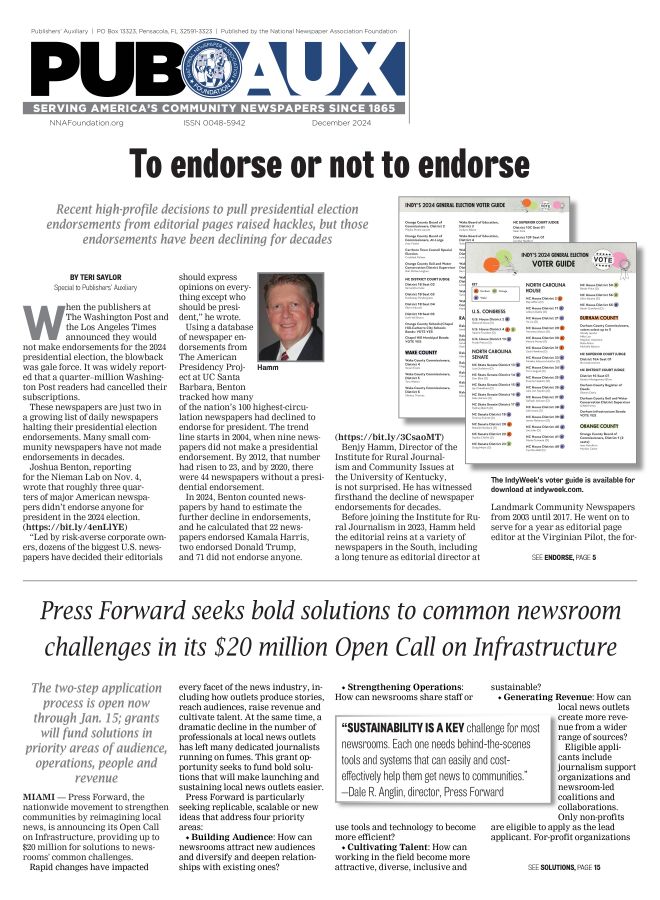Paying the price for religious illiteracy
Oct 10, 2012
FOR IMMEDIATE RELEASE – PUBLISHABLE ANYTIME – 10-4 THROUGH 11, 2012
Inside the First Amendment
By Charles C. Haynes
First Amendment Center
In Judge Joseph Sheeran’s courtroom, religious literacy is seen as an antidote to intolerance and hate.
Last week, the Michigan judge gave Delane Bell two years’ probation for attacking two men Bell thought were Muslims. But the judge conditioned the sentence on Bell’s completing a 10-page paper on Hinduism, the actual faith of the assault victims.
This was Judge Sheeran’s second attempt to educate Bell about religions. At his plea hearing, Bell was ordered to write a paper on the cultural contributions of Islam, presumably to help him stop viewing all Muslims as terrorists.
As much as I admire the judge’s optimism about the power of learning, it’s probably naïve to hope that writing a paper will inspire remorse in people who beat up Muslims, spray paint synagogues with swastikas, burn down black churches or – as we saw this past summer – gun down Sikhs.
But on the larger question of what Americans need to know in order to be good citizens, Sheeran may be onto something.
Study about religions in school, it turns out, can indeed increase tolerance and understanding among people of different faiths and beliefs.
After taking a course in world religions, high school students increase their support for the rights of others, according to a study by Emile Lester and Patrick Roberts published by the First Amendment Center in 2006. The study also found that students leave the course with a greater understanding of the major world religions and a fuller appreciation of the moral values shared across differences.
Unfortunately, however, few American students are exposed to substantive teaching about religions. Only one public school district (Modesto, Calif.) has a required world-religions course. Only a small number of districts offer world religions as an elective.
It’s true that, unlike 20 years ago when the public school curriculum was largely silent about religion, social studies textbooks and standards now include some study of religions. But in many history classrooms the treatment of religion remains mostly superficial and incomplete.
Owing to the religion gap in public education, most Americans are illiterate about religious traditions (including their own). That conclusion supported by a 2010 religious-knowledge survey conducted by the Pew Forum on Religion and Public Life.
How much America’s religious illiteracy contributes to religious intolerance and hate is, of course, difficult to measure. But in an age when religion plays a key role in shaping events at home and abroad, ignorance about religion can only deepen tensions among people of different faiths and beliefs – and lead to poor public policy.
Consider, for example, recent and current proposals in many state legislatures to bar courts from considering Shariah and other religious laws. Much of this debate has been shaped by false propaganda about how Shariah (Islamic law) is somehow creeping into the American court system.
In reality, there is no evidence that Shariah (or other religious law) is being substituted for U.S. law in American courts. The First Amendment clearly prohibits government imposition of any religious law.
Educating the public, starting with state lawmakers, about the actual meaning of Shariah – and how American Muslims understand the role of Shariah in their lives – could go a long way toward preventing passage of unnecessary and discriminatory legislation.
And educating the public, starting with public school students, about world religions could help turn down some of the heat in our ugly culture-war fights over religion.
Who knows? A religiously literate population might also lead to fewer rage-filled hate crimes targeting people because of their religion.
Maybe then Judge Sheeran wouldn’t need to assign so many papers that should have been assigned in high school.
Charles C. Haynes is director of the Religious Freedom Education Project at the Newseum, 555 Pennsylvania Ave., N.W., Washington, D.C., 20001. Web: firstamendmentcenter.org. E-mail: chaynes@freedomforum.org.







